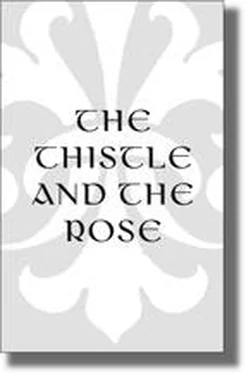Jean Plaidy - To Hold the Crown - The Story of King Henry VII and Elizabeth of York
Здесь есть возможность читать онлайн «Jean Plaidy - To Hold the Crown - The Story of King Henry VII and Elizabeth of York» весь текст электронной книги совершенно бесплатно (целиком полную версию без сокращений). В некоторых случаях можно слушать аудио, скачать через торрент в формате fb2 и присутствует краткое содержание. Жанр: Старинная литература, на русском языке. Описание произведения, (предисловие) а так же отзывы посетителей доступны на портале библиотеки ЛибКат.
- Название:To Hold the Crown: The Story of King Henry VII and Elizabeth of York
- Автор:
- Жанр:
- Год:неизвестен
- ISBN:нет данных
- Рейтинг книги:5 / 5. Голосов: 1
-
Избранное:Добавить в избранное
- Отзывы:
-
Ваша оценка:
- 100
- 1
- 2
- 3
- 4
- 5
To Hold the Crown: The Story of King Henry VII and Elizabeth of York: краткое содержание, описание и аннотация
Предлагаем к чтению аннотацию, описание, краткое содержание или предисловие (зависит от того, что написал сам автор книги «To Hold the Crown: The Story of King Henry VII and Elizabeth of York»). Если вы не нашли необходимую информацию о книге — напишите в комментариях, мы постараемся отыскать её.
To Hold the Crown: The Story of King Henry VII and Elizabeth of York — читать онлайн бесплатно полную книгу (весь текст) целиком
Ниже представлен текст книги, разбитый по страницам. Система сохранения места последней прочитанной страницы, позволяет с удобством читать онлайн бесплатно книгу «To Hold the Crown: The Story of King Henry VII and Elizabeth of York», без необходимости каждый раз заново искать на чём Вы остановились. Поставьте закладку, и сможете в любой момент перейти на страницу, на которой закончили чтение.
Интервал:
Закладка:
The Prince was very interested in Marguerite and wanted to hear all that he could about her. He had decided that Katharine had ruined her health by her refusal to lead the life of an ordinary Court lady. He shut his eyes to the fact that she was too short of money to do so, and he refused to listen to those who hinted that something should be done about this. It was for her family to help her, he reasoned. The dowry . . . well that had not been paid and he had heard that a great part of the first instalment had been in jewelery which she had pawned.
He pretended to be rather shocked by that. For did the jewelery indeed belong to Katharine?
He was building up quite a little bank of excuses why he should not marry her.
And here was Marguerite—younger than he was, which was better than being five years older. She was very beautiful. He liked that. She was very clever. He liked that less. He did not want a wife who thought herself as clever as he was. Still Marguerite sounded most exciting.
He questioned one of the men who had gone to the Court of Angoulême because he wanted to hear a firsthand account of someone who had actually seen her.
“I would like you to tell me the absolute truth,” he said. “Hold nothing back. I shall take it ill if I find that you have given me too glowing a picture that was not true.”
“I would not dream of doing so, my lord,” was the answer. “But I can tell you that Marguerite of Angoulême is one of the most beautiful ladies I have ever seen. She is brilliantly clever. She writes poetry and enjoys the company of poets. She is the constant companion of her brother, the young Duc d’Angoulême.”
“And what of him?”
“He is handsome, gracious, sparkling, my lord.”
Henry frowned; he did not like other people to be too brilliant.
“They are indeed a most beautiful trio.”
“Trio?”
“The mother, the brother, and the sister. They are always together but the object of their adoration is Duc François.”
“He is younger than I.”
“Yes, my lord, by a few years. He loves his sister dearly and she loves him. She is probably the more cultivated of the two—very learned in Greek, Latin and Philosophy. It is clear that the Duchess hopes her son will be the King of France she calls him her king, her lord and her Caesar.”
Henry was envious. He would have enjoyed being so adored. He thought of his sister—another Margaret—who had pretended to be contemptuous of him. And there was certainly no adoration from his father; as for his mother, she had been kind and tender, but he could not imagine her calling him Caesar.
He began to feel mildly irritated with these perfect beings.
“And Marguerite, what does she call this wonder brother of hers?”
“Caesar indeed. All their hopes and dreams and love are centered on that boy. I wonder he has not more conceit of himself than he has . . . but that is great enough. His mother talks of nothing else but the wonders of this boy . . . nor does the sister. It seems that a short while ago he let loose a wild boar in the courtyard at Amboise, which set the palace guards to flight but François himself chased the boar up the apartments, killed it with his sword and sent it rolling down the great staircase to the courtyard. They speak of all he does as though they were the greatest deeds worthy of the Court of King Arthur. I tell you, my lord, what the mother and sister feel for François of Angoulême is sheer idolatry. They think there is no one in the world like him . . . nor ever will be.”
“I daresay Madame Marguerite is of the opinion that no man can match her brother.”
“That is so, my lord. It is the law at Angoulême.”
Indeed, was it! The more he heard of this Marguerite the less inclined he felt to take her.
He was rather glad when no more was heard of the possibility. It might be that wily old Louis the Twelfth had put a stop to it.
But it made Henry thoughtful. Katharine, meek, turning to prayer because she felt frustrated and may possibly have heard of that rather shameful repudiation of her, seemed rather attractive.
How grateful she would be if in spite of everything he married her. How different from flamboyant Marguerite. He imagined her coming to the Court. All the time she would be comparing him to this brother of hers. Caesar indeed! Oh yes, there was much to be said for meek and grateful women.
He began to think of Katharine somewhat romantically. He visualized himself going to her and saying: “They were against our marriage. When I was young they forced me to sign a paper. I did so, but I had no intention of breaking my promises. And here I am, Katharine, ready to rescue you and make you my ever-loving queen.”
She would never forget what he had done. She would realize that he was a very perfect knight whose honor prevailed through all vicissitudes.
She would be grateful to him for the rest of their lives.
His conscience was so happy that it was lying dormant.
I shall marry Katharine, he told himself, no matter what the opposition.
And he looked ahead into a misty future. It might well be that when the time came there would be no one to go against his wishes.
The future looked glorious and rosy. He would dream of Katharine and the chivalrous rescue.
Shipwreck
 hat winter of the year 1506 was a bleak one. Katharine had suffered miserably from the cold. Her position had certainly not improved and since the death of her mother she had become an encumbrance in Spain as well as in England.
hat winter of the year 1506 was a bleak one. Katharine had suffered miserably from the cold. Her position had certainly not improved and since the death of her mother she had become an encumbrance in Spain as well as in England.
She very much feared the King; she felt that his attitude toward her was entirely cynical. He, who had professed affection for her and such delight when she had come to marry Arthur, was now grudging her the small allowance he had made her and letting her see that he very much regretted that she had ever come to England.
Life was so cruel. She was in this position through a sudden twist of fate. If Arthur had lived she might now be the happy mother of children, the future Queen. If her mother had lived none would have dared treat her in this way. She often wondered if her father had ever really cared for her at all. It seemed to her that his children had been merely the means of helping him to increase his power. She knew that was inevitable to a certain extent but when one of them was placed in a position such as she was, surely some family feeling might have been revived to help that unfortunate one.
She had pawned so many of her jewels that she was afraid they would not last much longer. The Prince of Wales would be fifteen in June. That had once been the time considered possible for his wedding.
Would it take place? If it did she would be lifted out of her misery. It must take place.
For the last year her life had gone from bad to worse. The King was displeased with her father and the alliance between them, which had begun with the marriage of Katharine and Arthur was severely strained. There were the perpetual differences about Katharine’s dowry, and both of them refusing to help her, each using the other as an excuse. So it seems that I, thought Katharine, am of no importance to either of them.
They were both acquisitive; they were both ruthless in their determination to achieve power and hold it. What did they care for a poor defenseless girl? It had been so different when Queen Isabella was alive.
In the previous year Ferdinand had remarried. Katharine had been shocked when she heard for she could not bear to think of another in her mother’s place, particularly as he had married a young girl and rumor said he doted on her. Katharine believed he had always been a little jealous of Isabella. She had been his superior in every way, mentally as well as in her possessions, but they had appeared to be fond of each other. Isabella certainly had been of him, but always she had realized his weaknesses and always he had resented her power.
Читать дальшеИнтервал:
Закладка:
Похожие книги на «To Hold the Crown: The Story of King Henry VII and Elizabeth of York»
Представляем Вашему вниманию похожие книги на «To Hold the Crown: The Story of King Henry VII and Elizabeth of York» списком для выбора. Мы отобрали схожую по названию и смыслу литературу в надежде предоставить читателям больше вариантов отыскать новые, интересные, ещё непрочитанные произведения.
Обсуждение, отзывы о книге «To Hold the Crown: The Story of King Henry VII and Elizabeth of York» и просто собственные мнения читателей. Оставьте ваши комментарии, напишите, что Вы думаете о произведении, его смысле или главных героях. Укажите что конкретно понравилось, а что нет, и почему Вы так считаете.












